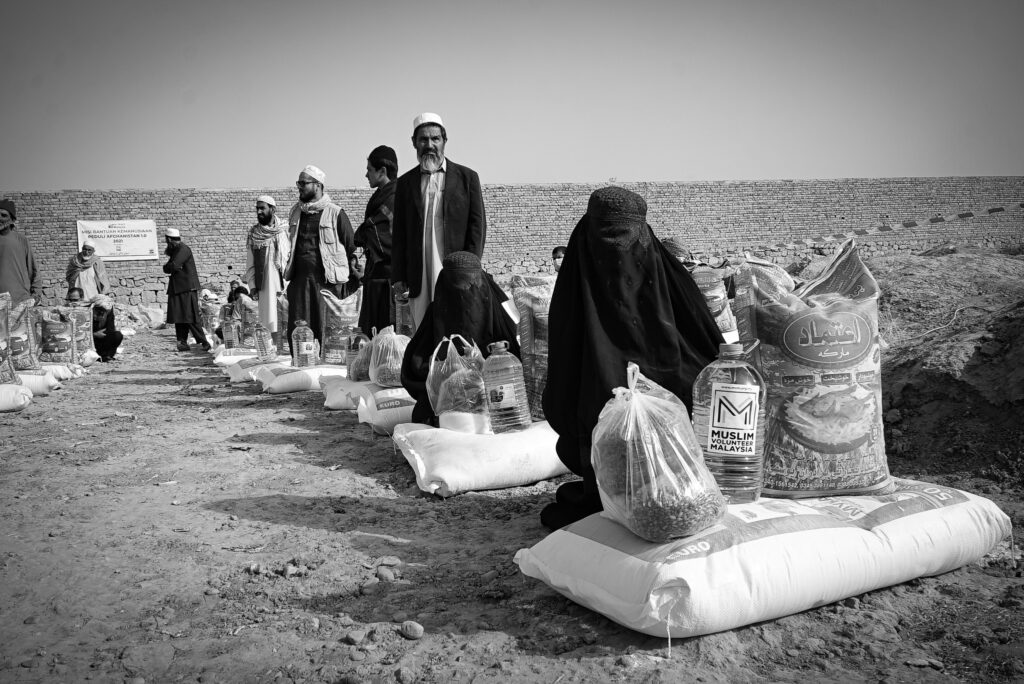
September 2024 marks the three-year anniversary of the last US troops leaving Afghanistan. The withdrawal of foreign troops, initiated by former US President Trump and implemented by current President Biden, is the beginning of a series of sad developments in the country. The Taliban’s extremist policies are causing oppression and poverty among the population, while extremist groups such as Al-Qaeda are given a platform to develop. Girls and women in particular are disproportionately victims of the violence.
A brief history lesson
The initial US invasion of Afghanistan was a direct result of 9/11. The Taliban regime in Afghanistan refused to extradite several high-ranking members of Al Qaeda to the United States after the attacks. In retaliation, the country was invaded under the leadership of then-President Bush. The Taliban was defeated fairly quickly, with many members settling in neighboring Pakistan. From here, they would attempt to overthrow the newly established Afghan regime for more than 20 years. The war would last until 2021, culminating in the killing of Osama bin Laden in 2011.
On February 29, 2020, the US and the Taliban sign an agreement that outlines the departure of American troops from Afghanistan. After more than 20 years of war in the region, former President Trump is pushing for the return of American soldiers to the conflict zone. At that point, the war had cost an estimated 2,400 American lives and more than 2,000 billion euros. Although the content of the deal was initially kept secret, later reports suggest that the deal depended, among other things, on a reduction in violence in the region and the release of several hundred Taliban prisoners in Afghan prisons.
The conditions have been widely criticized, as experts say they are unrealistic. Despite their promise to reduce violence, the Taliban have clearly stated their ambitions to return the country to Islamic rule. They have also warned that the war will not end for them until their plan has been achieved. Many fear a new Taliban advance after the departure of foreign troops. “Highly unlikely,” President Biden called this during one of his speeches when he implemented the withdrawal of American troops in 2021. Unfortunately, nothing could be further from the truth. Taliban rebels managed to occupy the capital city of Kabul on August 15, a fortnight before the complete withdrawal of the US.
A humanitarian crisis
An estimated 90% of Afghanistan’s population lives in poverty. After the Taliban takeover, the Afghan economy collapsed and hundreds of thousands of jobs were lost. The result is a state struggling with extreme poverty. It is estimated that two-thirds of Afghanistan’s population needed humanitarian aid in 2023. Climate-related extremes are only adding to this figure, with the number of Afghans in need of aid expected to increase in 2024. Lack of technological and financial investment is causing a health crisis for a large part of the Afghan population, whose access to basic and quality care has been significantly restricted. The withdrawal of international support after the Taliban takeover is causing a further drastic reduction in budget. Furthermore, the censorship of free press leads to the arrest and torture of journalists and activists in the region, and many non-profit organizations have been disbanded. Aid organizations cannot continue their work and aid for many minority groups is falling away. The accumulation of problems in the region can be categorized as an acute humanitarian crisis.
Girls and women disproportionately victimized
The humanitarian crisis in Afghanistan is also accompanied by an additive gender crisis. Girls and women are disproportionately victims of the extremist regime. Since the resurgence of the Taliban, more and more rights have been taken away. Girls no longer have access to secondary and tertiary education. Universities and high schools for women have been closed. Access to the labor market is also restricted, leaving women without the opportunity to work and earn their own income. The Taliban also prevents access to health care, and women are no longer allowed to visit parks or play sports. All support services for domestic and gender-based violence have been dismantled. And it doesn’t stop there. Since January 2024, women in the capital have been arrested for not complying with the strict dress code. A so-called ‘bad hijab’ has led to stories of abuse and torture by the Taliban authorities. In March 2024, the Taliban introduced a new law that allows women to be stoned to death for ‘moral crimes’, such as sex outside of marriage or running away from home. In August 2024, it was added that women are no longer allowed to sing in public places. Many Afghan women testify that they feel trapped in their own homes, forgotten by the international community, and suicide rates are steadily rising.
A silver lining?
The situation for Afghan citizens is dire. Nevertheless, positive stories are also told. VRTNWS published a report on a Belgian learning platform that gives students in Afghanistan the opportunity to study from home and develop new talents. The English-language courses are free of charge and are outside the regular education circuit, which means that girls can participate in relative safety. Various collectives from all over the world are trying to help where possible through similar projects and fundraising. But it is not enough. International support is just the tip of an (as yet) unmeltable iceberg. Due to the international focus on conflicts such as Gaza and the war in Ukraine, government leaders are often less focused on Afghanistan. The country is also completely cut off from international banks, because the Taliban is not recognized as a legitimate ruler. The crisis in Afghanistan seems to have no end for the time being, and women and girls suffer disproportionately from these facts.
Want to know more about the situation in Afghanistan?
VRT NWS wrote an overview of the situation after three years of taliban rule (NL): Taliban al 3 jaar stevig in het zadel: de wereld kijkt weg van Afghanistan | VRT NWS: nieuws
Human rights watch is monitoring the situation closely. New udates can be found here (EN/FR): Afghanistan | Country Page | World | Human Rights Watch (hrw.org)
General information about the history of the conflict? Check Wikipedia!

Sara-Lynn Milis
Resource centre and projects


